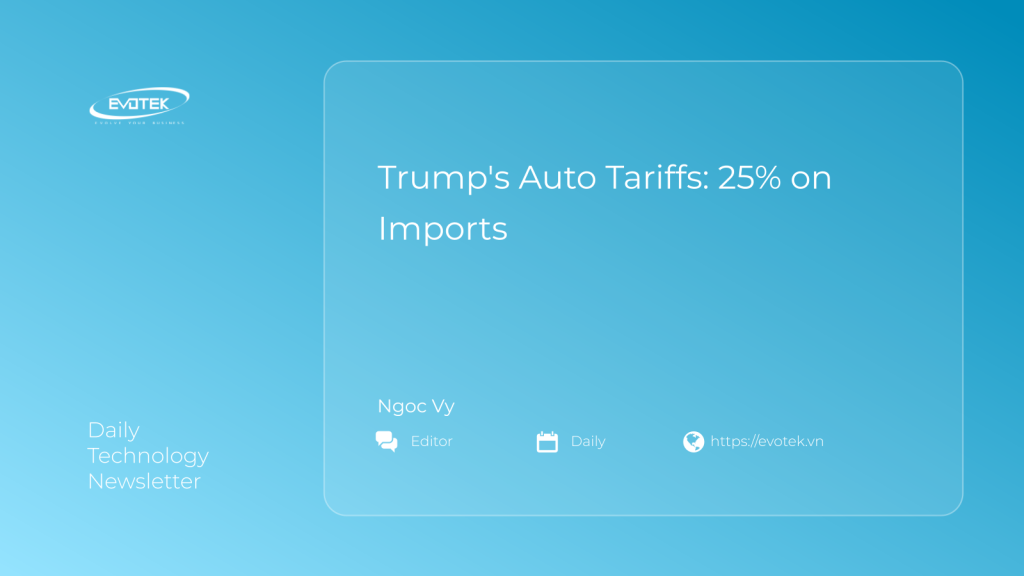Former President Trump has announced a significant shift in trade policy, imposing a 25% tariff on all imported vehicles and foreign-made auto parts entering the United States. This move has sparked widespread debate and criticism from both domestic and international entities.
Impact on Automakers and Consumers
The tariffs are expected to have a ripple effect across the automotive industry. While the stated goal is to incentivize manufacturers to relocate or expand their operations within the U.S., the immediate impact could be higher prices for consumers and reduced competitiveness for automakers relying on imported parts.
Shares of major U.S. automakers like General Motors, Ford, and Stellantis experienced a downturn following the announcement. Asian automakers, including Nissan, Toyota, and Hyundai, also saw their stock values decline.
Industry Reactions
Jennifer Safavian, president and CEO of Autos Drive America, cautioned that the tariffs would increase the cost of producing and selling cars in the U.S., potentially leading to fewer options for consumers and job losses in the manufacturing sector.
The American Automotive Policy Council, representing Ford, General Motors, and Stellantis, emphasized the importance of implementing tariffs in a way that avoids raising prices for consumers.
International Response
Foreign governments have expressed strong concerns about the new tariffs. Leaders from Japan, Germany, Canada, and the European Union have criticized the move, with some threatening retaliatory measures.
- Japanese Prime Minister Shigeru Ishiba indicated his government was considering all options in response.
- The German Association of the Automotive Industry called the tariffs a “disastrous signal for free, rules-based trade.”
- Canadian Prime Minister Mark Carney labeled the tariffs a “direct attack” on Canadian workers.
- European Commission President Ursula von der Leyen expressed deep regret over the decision.
Potential Price Increases
Experts predict that the 25% tariff could lead to substantial price increases for affected vehicles. Some models could see price hikes of up to $12,000, while others might increase by around $4,000, costs that are likely to be passed on to U.S. buyers.
USMCA Considerations
Companies importing vehicles under the United States-Mexico-Canada Agreement (USMCA) will receive special consideration until the Commerce Department establishes a process for levying the 25% duties. USMCA-compliant auto parts will remain tariff-free until further notice.
Looking Ahead
The long-term effects of these tariffs remain uncertain. The situation is dynamic, and businesses and consumers should stay informed about potential changes and adjustments to trade policies.
Stay tuned for further updates as this story develops.

 日本語
日本語 한국어
한국어 Tiếng Việt
Tiếng Việt 简体中文
简体中文